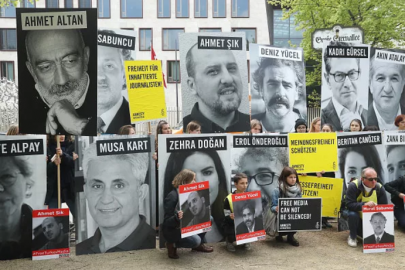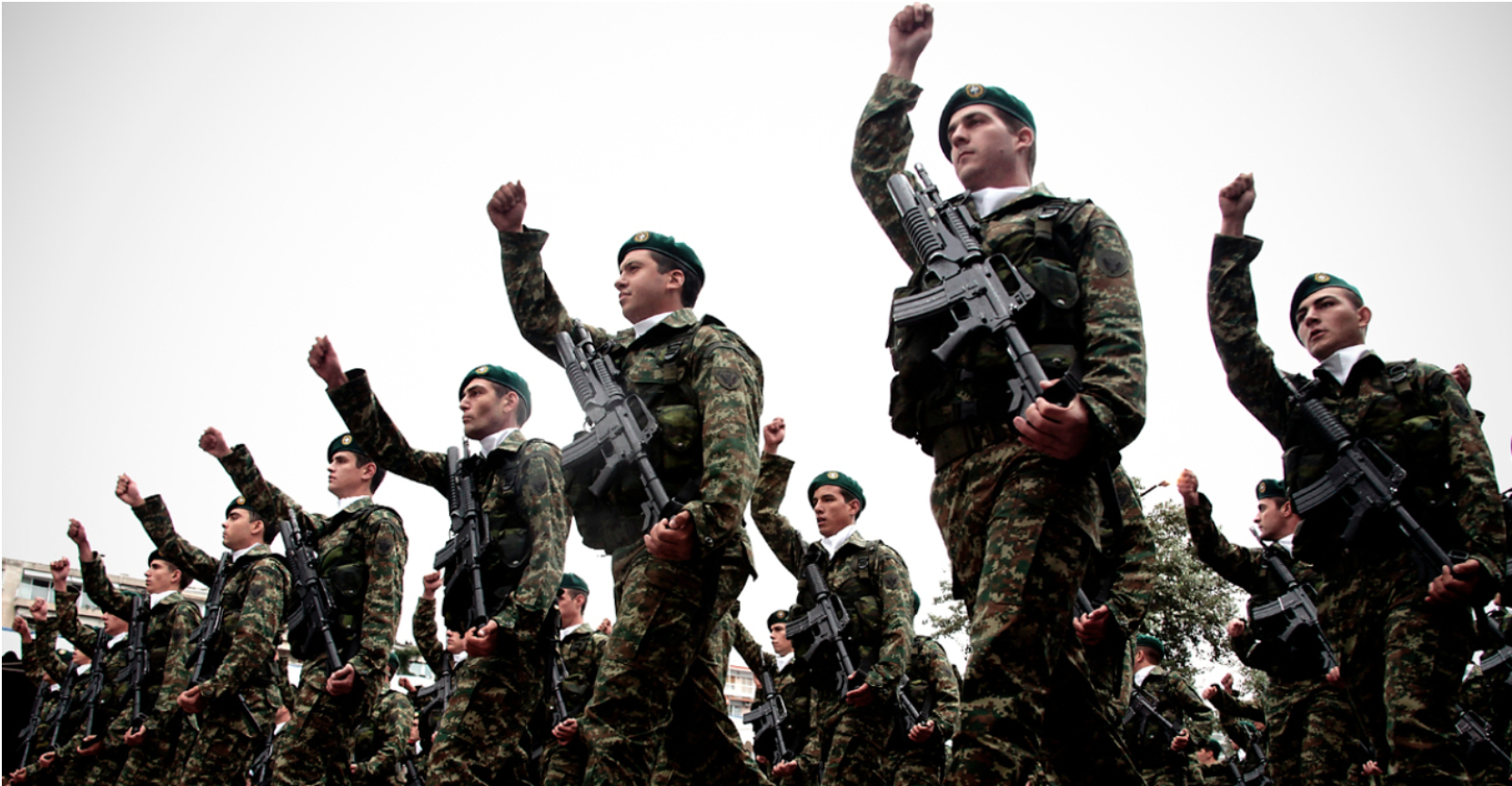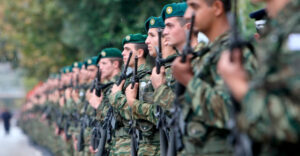Turkey is engaging in “hostage diplomacy” by holding several US and German citizens on seemingly trumped-up terrorism charges as bargaining chips in order to force the US and Germany to extradite Turkish nationals, according to current and former security officials in Europe and the US.
Among those being held are an American pastor, Andrew Brunson, who’d lived in Turkey for 20 years before his arrest 10 months ago, and a Turkish-German journalist, Deniz Yücel, who was detained in February.
European security officials, speaking anonymously because of the sensitivity of the matter, said Turkish representatives have repeatedly linked the arrests of Americans and Europeans to the extradition of Turkish nationals blamed for last year’s failed coup attempt against the government of President Recep Tayyip Erdogan.
“The Turks have been shameless about [privately] linking arrests to people they want in the US and Germany,” one European police official told BuzzFeed News. “We’re in the process of warning our own people to pay attention.”
Asked on Thursday by BuzzFeed News why Yücel had not been released, German Foreign Minister Sigmar Gabriel was blunt. “Because Turkey, in my opinion, holds him as a hostage,” Gabriel said — a rare Western official willing to say publicly what European security officials have been saying to BuzzFeed News privately for weeks.
Trump administration officials have been more circumspect, loath perhaps to accuse a NATO ally of lawless behavior. Secretary of State Rex Tillerson has said only that Brunson’s release is a top priority, but the State Department has declined to go further and refused to make anyone available for a more detailed interview.
More than 200 people were killed in the coup attempt, and Turkey has since purged tens of thousands of Turks from public sector jobs for supposed sympathies with the coup plotters.
At the top of the list of Turkey’s demands is the extradition of an aging Muslim cleric, Fethullah Gulen, a US resident who Erdogan’s supporters say was the plot’s mastermind. US officials to date have declined to extradite him, saying the evidence Turkey has produced doesn’t prove Gulen’s involvement.
Turkey is also seeking the return from Germany of a dozen or so Turkish military officers who were in the country at the time of the coup attempt and who subsequently sought political asylum there. Turkey also wants the return of a prominent cleric, Adil Oksuz.
The standoff with Germany reached a peak last month, when Turkey arrested a German national leading a training course for Amnesty International in Turkey, Peter Steudtner. He is the latest German to be detained, adding to a list that includes Yücel and Mesale Tolu, a German journalist who’s being held with her 2-year-old son on charges of circulating terrorist propaganda and membership of a terrorist organization.
“The cases of Peter Steudtner, Deniz Yucel and Ms. Tolu are examples of the absurd accusations of terror propaganda that obviously are only meant to serve to silence every critical voice in Turkey … and also voices from Germany,” Gabriel said after meeting with German Chancellor Angela Merkel on July 20 about the arrests.
At least 22 Germans have been detained, nine of whom are believed to still be in custody. On Wednesday, German officials said they’d consider any legal extradition request by the Turkish government.
The number of Americans being held is uncertain. Numerous sources say there are four, but only two have been publicly identified: Brunson, a Christian pastor held since October on charges of supporting a Kurdish militant organization, and Serkan Golge, a Turkish-American scientist who works for NASA. Gole was arrested during a family holiday to Antakya in southern Turkey eight days after the failed coup. BuzzFeed News was unable to determine the identities of the other Americans reportedly being held.
Brunson’s family — who did not respond to request for comment — have noted in previous statements that no evidence against him has been presented in Turkish courts.
The Turkish efforts to force the return of its nationals aren’t limited to coup plotters, say officials and analysts who are following the standoff with growing concern. Among the people Turkey is seeking is Reza Zarrab, who faces trial later this year in New York on charges stemming from a massive oil-for-gold scheme between Turkey and Iran to evade international sanctions against the latter. The case has drawn the attention of analysts because one of Zarrab’s lawyers is former New York Mayor Rudolph Giuliani, a confidant of President Donald Trump, who has been retained to pursue a diplomatic solution.
Eric Edelman, who served as US ambassador to Turkey from 2003 to 2005, cited Giuliani’s role as well as reports that Erdogan had personally mentioned the case with Tillerson and the Trump administration. “At a minimum,” he said, those contacts give “the appearance that the Turkish government is engaged in hostage diplomacy.”
For his part, Erdogan has been open that his goal is to force Germany and the US to cooperate with his pursuit of suspected coup plotters. In a speech on Aug. 8 to a gathering of his AKP political party in the Black Sea city of Trabzon, he said Turkey would release the people it holds only in exchange for concessions on extradition.
“The charlatan [Gulen] is in Pennsylvania,” he said. Then he added, as if speaking directly to the US, “You are feeding these terrorists and then you tell us to return this person … First you will give us [something] and then you will get something from us. This is no longer the old Turkey, it is the new Turkey.”
The Turkish actions are being watched warily by other European nations, particularly at NATO headquarters in Brussels.
Five senior European security officials have told BuzzFeed News in recent weeks that they’ve begun the internal process of warning their governments that Turkish security forces could target Europeans for arrest on dubious charges in an effort to pursue “hostage diplomacy,” in the words of three of the officials.
A NATO military intelligence officer described the patterns of arrests, purges, and public accusations against foreigners as additionally disturbing because the arrests appear to be arbitrary.
“Now we have an awkward situation in which Turkey appears to be targeting citizens of countries for arrest as leverage in their hunt against Gulenists and military officers, a hunt that feels more like a paranoid purge of anyone that can threaten [Erdogan’s] rule,” the officer said.
Turkish diplomats in Berlin, Brussels, and Washington did not return requests for comment.
The divisions among the NATO allies exacerbates a tense situation that affects a wide range of NATO issues, including the US-led campaign against ISIS. For two days after the coup attempt, Turkey cut off access to the Incirlik air base, on which the US-led anti-ISIS campaign over Syria depends, and disrupted the base’s electricity service. The US since has evacuated dependents of the 2,500 US troops based at Incirlik and has cautioned Americans traveling to Turkey to be aware of political unrest and anti-Americanism.
Germany, too, has issued warnings to its nationals investing in and traveling to Turkey. Earlier this year, Germany provoked Erdogan’s ire by limiting Turkish officials’ ability to campaign among Germany’s 3 million residents of Turkish descent ahead of a referendum that granted Erdogan sweeping new powers as president. Turkey retaliated by briefly designating 700 German companies doing business in Turkey as suspected of supporting terrorism — a designation it lifted almost immediately.
Aykan Erdemir, senior fellow at the Foundation for Defense of Democracies in Washington and a former member of the Turkish Parliament, called the situation among Turkey, Germany, and the US increasingly worrisome.
“Especially since the abortive coup, the AKP has been systematically fueling anti-Western conspiracy theories and targeting not only Germany but a number of its NATO allies,” he said. “As we have been seeing with the government-controlled media, there will continue to be smear pieces blaming Turkey’s Western allies for pretty much everything that goes wrong in Turkey.”
Erdemir went so far as to accuse Turkey of acting like Iran, “using religious minorities and foreign-national hostages as bargaining chips in international dealings.”
“I don’t think of these as random developments,” he said.
Adding to tensions is anger at Turkey over the July 19 publication by Turkey’s government-owned Anadolu news agency of a report and map that detailed the specific locations and numbers of US, French, and British forces in northern Syria.
The French military was particularly angry, said the NATO military intelligence officer in Brussels, because the report revealed the presence of French troops who’d been undertaking an aggressive campaign to eliminate many of the hundreds of French nationals who’ve joined ISIS before they could return to Europe. The NATO source said that while the presence of US commandos in Syria was well known, the French program was largely a secret and was considered critical to heading off the kinds of ISIS attacks in Europe that have claimed scores of lives.
“A secret NATO operation to eliminate terrorists before they can attack Europe was revealed by a NATO ally,” he said. “That should tell you how bad things are in this relationship.”
A French Ministry of Defense official who asked not to be named described the betrayal as historic.
“The decision to leak the location of NATO troop locations in northern Syria through a news agency that most consider a mouthpiece of the AKP was maybe the worst intentional public betrayal of a NATO operation by a member state I have seen in over a decade,” he said. “It feels like Turkey is in the hands of cynical amateurs.”
Ask me anything
Explore related questions





